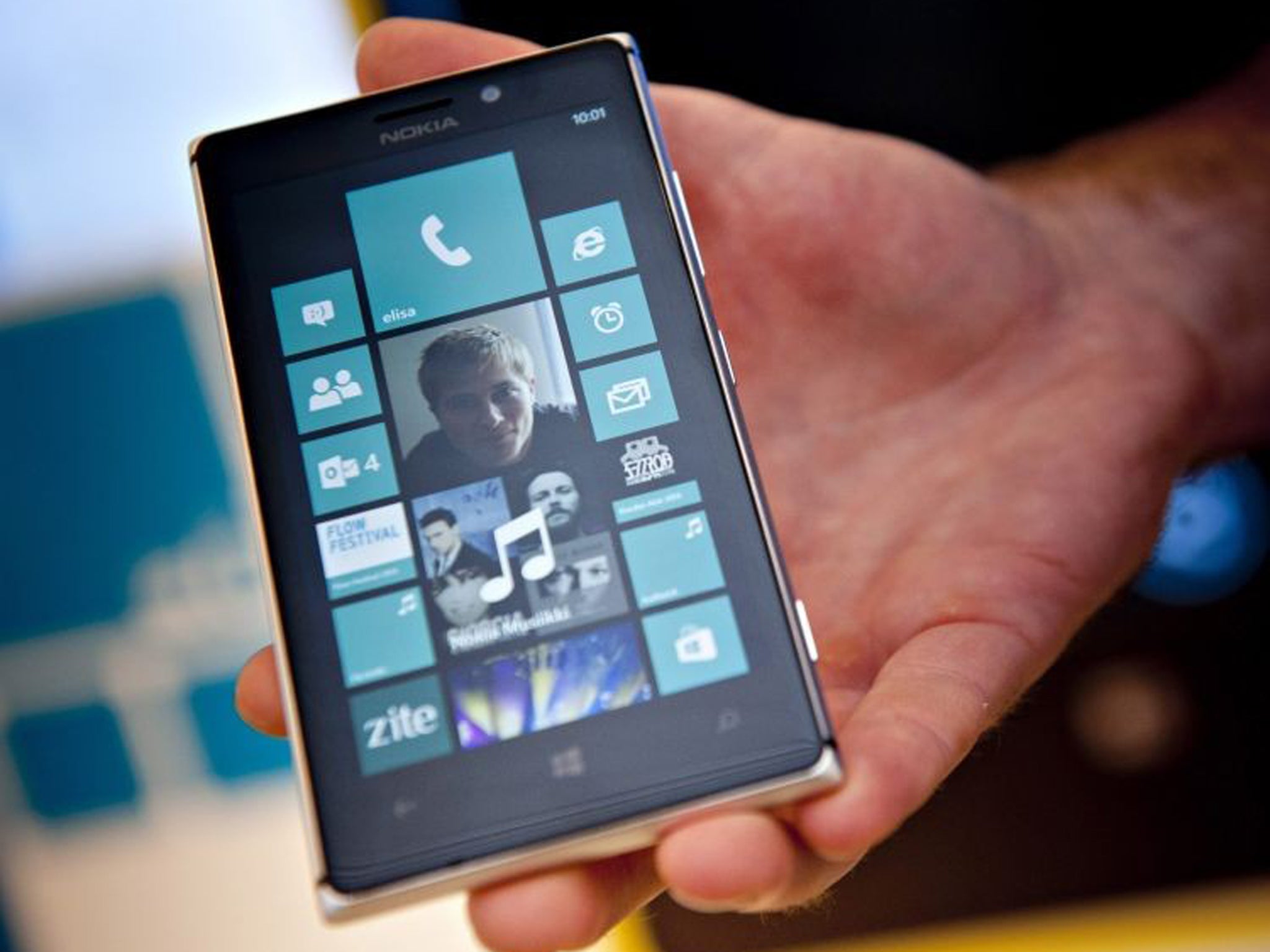Microsoft buys struggling mobile arm from Nokia for £4.6bn
The software giant is looking to make gains in the mobile market, and will acquire all of the Finnish handset-maker’s patents as part of the deal

Your support helps us to tell the story
From reproductive rights to climate change to Big Tech, The Independent is on the ground when the story is developing. Whether it's investigating the financials of Elon Musk's pro-Trump PAC or producing our latest documentary, 'The A Word', which shines a light on the American women fighting for reproductive rights, we know how important it is to parse out the facts from the messaging.
At such a critical moment in US history, we need reporters on the ground. Your donation allows us to keep sending journalists to speak to both sides of the story.
The Independent is trusted by Americans across the entire political spectrum. And unlike many other quality news outlets, we choose not to lock Americans out of our reporting and analysis with paywalls. We believe quality journalism should be available to everyone, paid for by those who can afford it.
Your support makes all the difference.Microsoft today took over Nokia’s struggling mobile phone division and acquired a broad portfolio of patents in an enormous €5.4 billion (£4.6 billion) deal.
Nokia chief executive Stephen Elop, a former Microsoft executive, will continue to run the division and he is now rated hot favourite to succeed Microsoft chief executive Steve Ballmer.
Ballmer announced last month he would step down after pressure from Microsoft shareholders who have been unhappy that the software giant has failed to keep up with rival Apple in phones and tablets.
Shares in Nokia, which still has a successful telecom networks and equipment business, surged 36 per cent on news that it was off-loading the handsets division after years of dire results.
Microsoft is paying €3.79 billion for the business and €1.65 billion for Nokia’s valuable patents. Around 32,000 Nokia employees will join Microsoft.
The decision by the Finnish firm, once the market leader in mobile phones, to sell illustrates the dramatically changing fortunes of the industry that Samsung and Apple now dominate.
As recently as 2008, Nokia used to have a near-40 per cent worldwide market share in mobile phone sales but now that has slumped to just 14 per cent, according to research firm Gartner. Sales of smartphones have been worse as Nokia has a derisory 3.1 per cent of the market, meaning it has sunk to ninth in the world.
Lee Simpson, telecoms analyst at Jefferies Bank, said Nokia’s recent troubled history meant Microsoft was “the only possible buyer of this division, although it never appeared clear to us that this was a deal that had to happen”.
Simpson said it looked like a case of “double or quits” for Microsoft as it lags behind in mobile and sales of traditional desktop personal computers have been sliding.
Sales of the Microsoft Surface tablet, a belated rival to the iPad, have been weak and the Windows system has only 3 per cent market share in phones, compared to Google’s Android with 79% and Apple’s iOS with 14%.
However, in one sign of optimism, Windows’ market share overtook another troubled mobile rival, BlackBerry, earlier this year — helped in part by Nokia using Windows on its phones.
Microsoft, with a stock market capitalisation of $278 billion (£178 billion), can easily afford to buy Nokia’s handset business.
Despite Nokia’s woes, it still remains a major presence in more basic, so-called “feature” phones — particularly in emerging markets such as Africa.
Last year, it sold 334 million phones, down from 422 million a year earlier and a peak of 472 million in 2008.
The Nokia acquisition comes a day after Vodafone sold its 45 per cent stake in America’s Verizon Wireless for £84 billion amid a frenzy of takeover activity in the growing global mobile industry.
Join our commenting forum
Join thought-provoking conversations, follow other Independent readers and see their replies
Comments